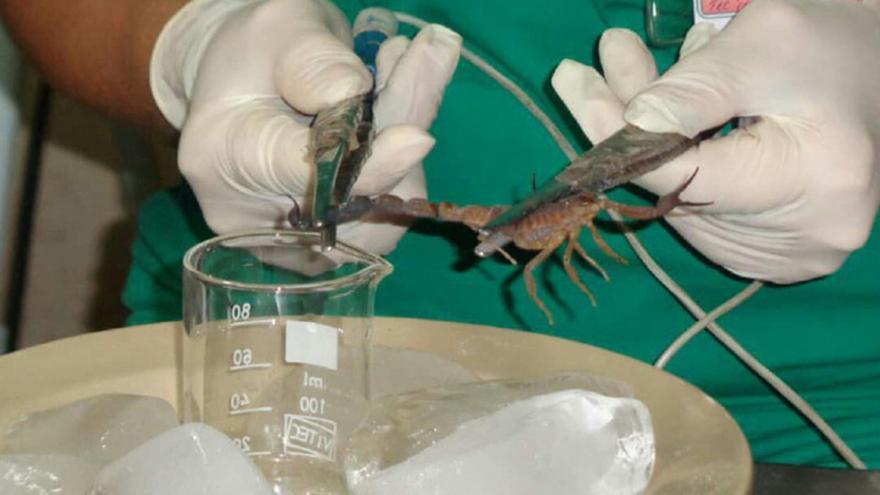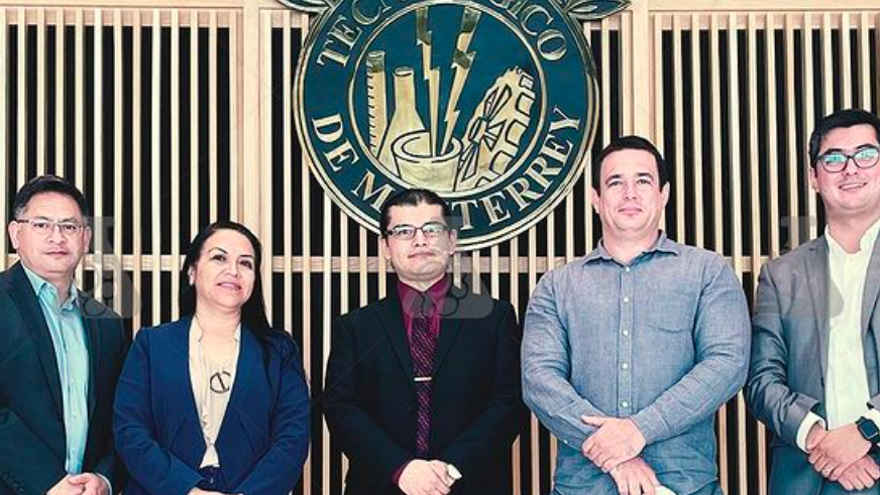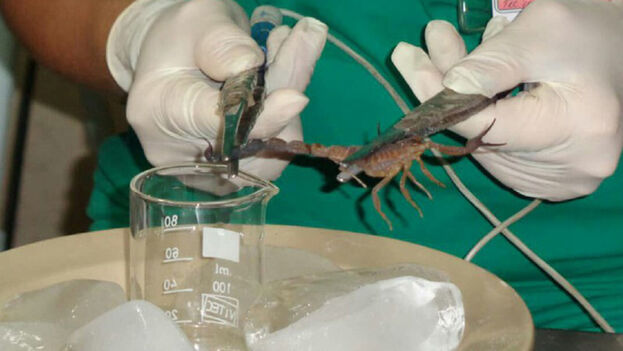
14ymedio, Havana, February 8, 2024 — Thirteen years ago, Cuban biologist Ariel Portal, expelled from the state-owned Labiofam and a fervent defender of the healing properties of blue scorpion venom, emigrated to Ecuador and founded his own company, Lifescozul. With a private investment of three million dollars in the last seven years and a team of “renegade” Cuban scientists, the company insists – against scientific consensus – that the toxins of Rhopalurus junceus can cure cancer, and it dedicates its resources to procuring it.
Concerned that he will be linked to the Cuban regime after reading this newspaper’s recent articles about Lifescozul, Portal answers several questions. The most disturbing: how does a group of researchers, who supposedly broke all ties with their country of origin, get the venom of a scorpion that is endemic to Cuba?
Through “at least” two independent producers who live on the Island, Portal replies. They are the ones who “capture and milk the scorpions,” and then “someone” from the company travels to Cuba to pick up the bottles with the substance. Once abroad, the bottles are sent to the Lifescozul laboratories in Mexico and Chile to check that the substance is not adulterated. “Each venom has its own unique footprint,” Portal clarifies.
According to the biologist, the collection process is carried out without help – or permits – from the Cuban State. In fact, independent scorpion hunters are one of the headaches of Labiofam, the State company, which also manufactures a homeopathic substance based on scorpion venom, Vidatox, whose effectiveness against cancer is denied by Portal.
Lifescozul began as a “service company,” says the scientist, but now considers itself a “pharmaceutical development” company, with allies such as Pharmometrica, a Mexican laboratory that, according to Portal, “analyzes each sample (of venom) and certifies it for our studies.”

The company is now asking its private investors for another 11 million dollars to enter a phase of clinical trials of its product, Escozul. For the company, Portal assures, having private capital “especially in the last five years” has been decisive.
The current structure of Lifescozul – which also works on another kind of products, such as nutritional supplements and vitamins – includes a scientific department, led by microbiologist Alexis Díaz, the “maximum authority” in the venom of the Cuban scorpion; a clinical trials department, headed by Dr. Mariela Guevara; and other marketing, medical care and follow-up teams.
They have a factory in Colombia, a research center in Mexico, and the financing of the project is managed in the United States. The headquarters is located in Ecuador, where Portal founded the “parent company” of Lifescozul in 2009.
Behind each of the people in charge of the company – all former Labiofam scientists – there is a story. Portal himself was dismissed from his position in the state pharmaceutical company in 2006, when he confronted its former director, José Antonio Fraga Castro, Fidel Castro’s nephew. Vidatox, the product manufactured by Labiofam – and one of Escozul’s competitors in the international market – was “a whim of Fraga Castro,” says Portal.
In 2000, scorpion venom as a cure for cancer was one of the obsessions of both the uncle and the nephew, says Portal. “Many patients went to Cuba to look for it because the BBC and CNN reported on its potential.” The pioneer of th


